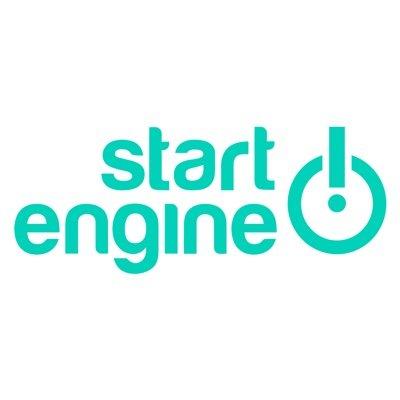Invest in private assets
Invest in startups in exchange for equity or debt
Investments
$10
Fundrise allows a minimum investment of $10 for taxable accounts and $1,000 for IRAs.
Investments
$250
The minimum investment on StartEngine typically starts from $250, with the average being around $500.
Moderate Risk
3/5
Investing with Fundrise involves risks such as limited liquidity, potential modifications to the share repurchase program, market volatility affecting asset values, the possibility of total investment loss, and regulatory changes impacting operations.
High Risk
4/5
Investing on StartEngine carries risks including market volatility, liquidity challenges, regulatory changes, the high likelihood of company failure, dilution of shares, limited company information, and the absence of guaranteed returns.
Minimum Liquidity
1/5
Fundrise offers liquidity through its share repurchase program, allowing investors to redeem shares quarterly with no penalties or costs.
Minimum Liquidity
1/5
Liquidity on StartEngine Secondary varies due to its nature as a peer-to-peer trading platform with specific eligibility criteria and trading hours. Initially limited to companies that have raised on StartEngine, the platform's liquidity is influenced by the availability of securities and the matching of buy and sell orders within designated market hours.
Receive new reviews from Fintorial
Low Return
4.81 %
Investors on Fundrise can expect returns through dividends and appreciation, with an average income return of 4.81% over 7 years.
Not Predictable Return
N/P
Potential returns on investments are uncertain and vary. StartEngine's role ends after a company's capital raising concludes, leaving it without control or insight into post-offering investment activities.
Long-term Investment
5+ years
Fundrise is designed for long-term investments, ideally for a period of 5 or more years, due to its focus on strategies aimed at long-term return potential.
Long-term Investment
5+ years
Investments through StartEngine typically have a long-term horizon, often requiring several years to potentially yield returns due to the early-stage nature of the companies.
Who can invest
United States
To be eligible to invest with Fundrise, individuals must meet several criteria: they must be at least 18 years old, have permanent residency in the United States, possess a valid U.S. tax ID, and file taxes in the U.S. The platform is open to both accredited and non-accredited investors.
Who can invest
International
StartEngine allows anyone over 18 to invest. However, due to regulatory concerns, StartEngine does not currently accept investments from residents of the UK or Canada.
Moderate Volatility
3/5
Assets on the Fundrise platform, such as private real estate and venture capital, typically show lower volatility compared to public stocks and bonds, due to less frequent valuation updates and reduced exposure to daily market swings.
Moderate Volatility
3/5
Assets on StartEngine, mainly shares in startups and early-stage companies, exhibit high volatility due to uncertain revenues, evolving business models, and market sensitivity.
Regulation and audits
SEC Regulated
Fundrise is regulated by the SEC and must comply with strict reporting, disclosure, and operational standards. It undergoes regular independent audits to verify financial accuracy, legal compliance, and the effectiveness of its internal controls, ensuring transparency and integrity in its operations for investor protection.
Regulation and audits
SEC Regulated
StartEngine operates under strict regulatory oversight by the SEC and FINRA, ensuring adherence to investor protection and market integrity rules.
Insurance
No
Investments on Fundrise, including real estate and alternative assets, are not insured by the FDIC or any other government agency, exposing investors to the risk of loss without insurance protection.
Insurance
Yes
StartEngine's memberships with FINRA and SIPC signify its commitment to investor protection, with SIPC offering insurance against the loss of cash and securities if a broker-dealer goes bankrupt. However, it doesn't cover market loss.
Payouts
Dividends
Dividends are paid quarterly, based on income from portfolio projects, and can be either reinvested or cashed out. Appreciation comes from increases in the value of the investment, reflected in the net asset value (NAV) of shares. Returns start accruing after investment settlement, typically within 5 business days, and can be tracked on the Investor Dashboard.
Payouts
No Recurring Payouts
Dividends on StartEngine depend on the individual company's policy and investment terms, with startups often reinvesting profits to fuel growth rather than distributing dividends.
Withdrawals
To withdraw funds from Fundrise, investors must submit a liquidation request. Liquidations are reviewed quarterly for most funds, with a waiting period for the eFund. No penalty is charged for liquidating shares from the Flagship, Income, or Innovation Funds, but eREIT and eFund shares held for less than five years may incur a penalty. Liquidations are processed on a "First in, first out" basis.
Withdrawals
Investors can withdraw available funds from their StartEngine Investment Account after a 10-day waiting period from the initial transfer, subject to providing additional information for security if needed.
Extra Fees
Yes
Fundrise charges a 0.15% annual advisory fee, a 0.85% management fee for real estate funds, and a 1.85% management fee for the Innovation Fund. Early liquidation of eREIT or eFund shares before 5 years incurs a 1% penalty.
Extra Fees
Yes
Investors may encounter a 3.5% processing fee on investments, depending on the company's choice. Wire transfers could have additional bank fees, while ACH and credit card investments don't have extra fees beyond the 3.5% if applicable. Trading on StartEngine Secondary is free for buying, but selling shares includes a 5% transaction fee.
Taxes
Tax Form
Fundrise investors can expect Form 1099-DIV for eREITs or interval funds with distributions over $10, Schedule K-1 for eFund shares, and Form 1099-B for liquidated shares. Tax documents are issued at the end of January for 1099-DIVs and mid-March for K-1s, available on the investor dashboard. Multiple funds in a portfolio may result in receiving multiple tax forms.
Taxes
Annual Statement
Investors must procure the necessary tax documents directly from the entities in which they have invested, since StartEngine does not distribute tax forms.

